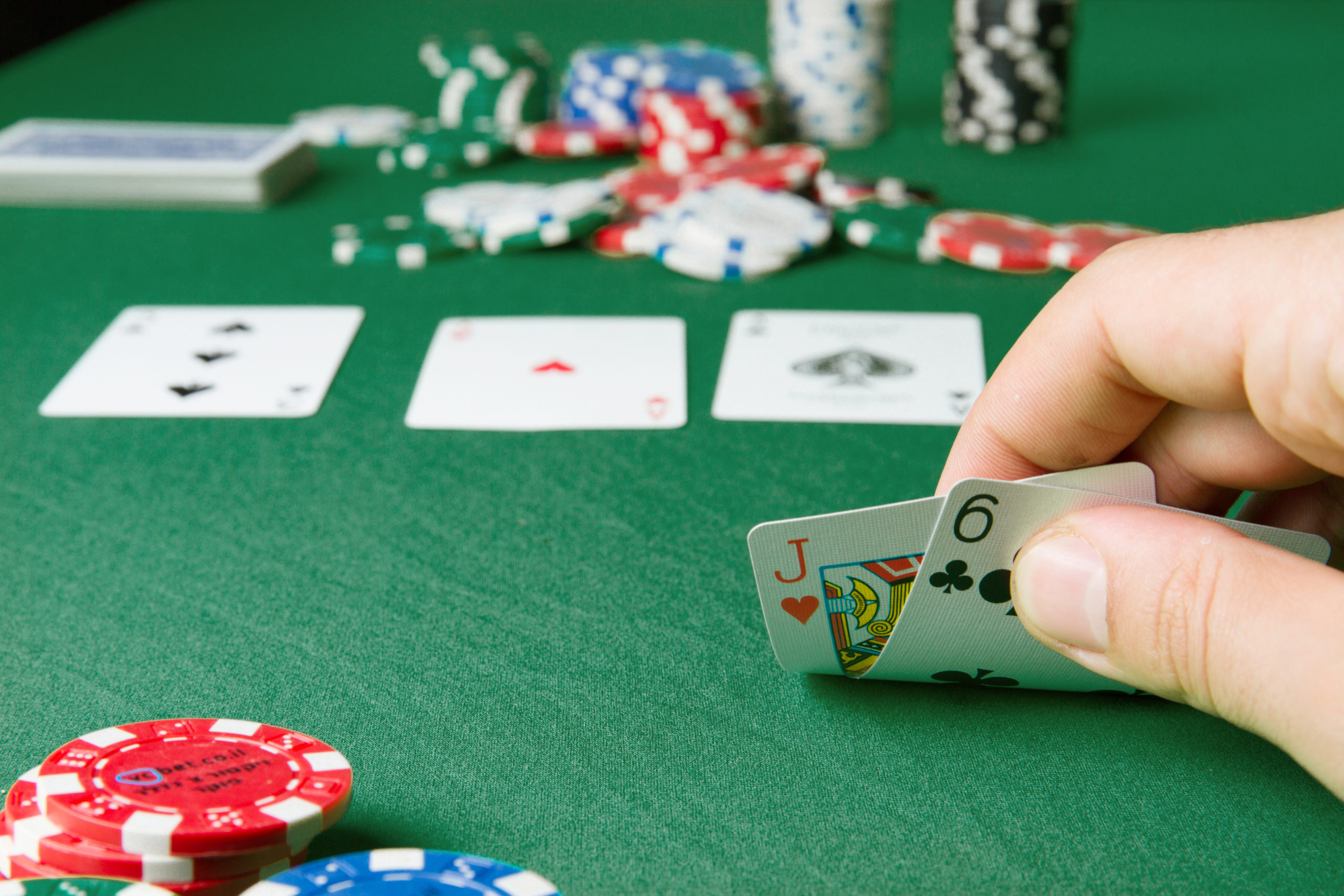Gambling In Different Cultures - Strategies For Cultural Sensitivity And Inclusion
Gambling in different cultures presents a rich tapestry of diverse practices, beliefs, and attitudes toward games of chance. From ancient rituals to modern-day casinos, gambling has been woven into the fabric of societies worldwide.
Author:James PierceReviewer:Elisa MuellerFeb 19, 2024483 Shares34.5K Views

Gambling in different culturespresents a rich tapestry of diverse practices, beliefs, and attitudes toward games of chance. From ancient rituals to modern-day casinos, gambling has been woven into the fabric of societies worldwide.
However, as our global community becomes increasingly interconnected, it is essential to approach gambling with cultural sensitivity and inclusion. By understanding and respecting the cultural nuances surrounding gambling, we can foster a more inclusive and equitable gaming environment for all.
Cultural Perspectives On Gambling
Cultural perspectives on gambling offer a fascinating lens through which to understand the varied attitudes, practices, and impacts of this ubiquitous human activity across different societies. In examining these perspectives, it becomes evident that gambling is deeply intertwined with cultural values, traditions, and norms.
- Values and beliefs -Gambling practices often reflect the values and beliefs of a culture. For instance, in some cultures, gambling may be viewed as a harmless form of entertainment or even as a social activity that fosters community bonding. Conversely, in cultures where thrift and prudence are highly valued, gambling may be seen as irresponsible or morally dubious.
- Social cohesion and identity -In many cultures, gambling serves as a means of social cohesion and identity formation. Whether through traditional games played during festive occasions or modern casinos that attract tourists, gambling can reinforce social bonds and provide a sense of belonging within a community.
- Ritual and ceremony -Some cultures incorporate gambling into rituals and ceremonies, imbuing it with spiritual or symbolic significance. These rituals may involve divination, luck, or propitiation of supernatural forces. Examples include traditional Chinese gambling games associated with Lunar New Year festivities or indigenous rituals involving games of chance.
- Economic and political context -Economic and political factors also shape cultural perspectives on gambling. In societies where economic opportunities are limited, gambling may be seen as a pathway to prosperity or a means of escaping poverty. Additionally, governments may regulate or promote gambling to generate revenue or to control social behavior.
- Stigma and taboo -Despite its widespread popularity, gambling is often accompanied by stigma and taboo in many cultures. This stigma may stem from religious teachings, moral concerns about addiction and exploitation, or perceptions of gambling as a vice associated with crime and corruption.
- Generational and regional differences -Cultural perspectives on gambling can vary significantly across generations and regions within a society. Younger generations may have different attitudes toward gambling than older generations, influenced by changing social norms and technological advancements. Similarly, attitudes toward gambling may differ between urban and rural communities or among ethnic and religious groups.
- Impact of globalization -Globalization has led to the spread of gambling practices and the fusion of cultural influences. Western-style casinos, online gambling platforms, and international sports betting markets have become increasingly prevalent worldwide, shaping local gambling cultures and challenging traditional norms and practices.
Various Countries Gambling Cultures
The cultural fabric of a nation or its specific locales significantly shapes the evolution of gambling patterns. With the advent of the Internet, individuals now have the means to test their luck from the comfort of their own homes, engaging in activities like online craps for real money. Moreover, they can partake in tournaments or challenge opponents from across the globe, transcending geographical boundaries.
Different national traditions and well-liked sports often influence attitudes toward gambling. Moreover, each generation holds its unique perspective on gambling. While it's a beloved pastime worldwide, the gambling culture in each country exhibits distinctive characteristics.
North America
In the United States, gambling is viewed as a form of entertainment rather than a reliable source of income. Historically, lotteries served as crucial economic lifelines for the colonies but were later banned. However, during the Great Depression, they were reinstated to bolster the economy. Lotteries have remained a major revenue generator while betting and casinos have significantly boosted the tourism industry.
Today, gambling is widespread across all 50 states, with each state independently regulating its various forms and rules. Additionally, activities like horse race betting, sports predictions, and poker games contribute to the country's gambling landscape. Statistics indicate that gambling can have a substantial positive impact on the national economy, fostering growth and increasing revenue.
England
Gambling in England boasts a rich history that spans as far back as the nation itself. These games originated from the belief that ordinary individuals could connect with higher powers, leading many religious institutions to incorporate them into their rituals.
During the Middle Ages, two types of games prevailed in England:
- Ordinary gambling required no particular skills from participants.
- Betting for money, where chance played a significant role but players needed analytical skills to place winning bets.
Around 1569, the first lotteries emerged in Great Britain. Proficiency often enabled individuals to earn substantial incomes from betting. Subsequently, the era of formalized money-based games began, with clandestine gambling establishments catering to the affluent population.
Today, Britain boasts numerous betting agencies and casinos, with over half of the population engaging in gambling or betting activities. Online casinos, particularly popular among individuals aged 18 to 25, have further cemented the country's gambling culture.
Spain
The Spanish have a distinct fondness for gambling, with lotteries being particularly beloved. Among them, El Gordo stands out as the most popular, having been held for over two centuries. Its main draw occurs on December 22nd and is televised, offering a grand prize of 4 million euros alongside smaller prizes. It's common for friends or family members to pool their resources and purchase multiple tickets together to increase their chances of winning.
Slot machines gained widespread popularity in Spain only in 1981, but today their numbers exceed 250,000. Additionally, the country hosts various casinos where games like blackjack, roulette, and slot machines are available. Gambling enjoys immense popularity partly because Spain does not levy taxes on winnings.
Italy
Gambling in Italy traces its roots back to Roman times, with early favorites including betting on sporting events, dice, and cards. Today, licensed online casinos have gained popularity, offering the convenience of real-money gambling accessible from virtually any device. The advancement of modern technology has heightened expectations for online gambling, as it holds the potential to deliver significant earnings.
Australia
According to statistics, approximately 70% of adults in the country engage in gambling at least once a year. Lotteries and scratch-offs rank as the most favored types among residents. Australians also enjoy spending time at gaming tables and trying their luck with slot machines, along with indulging in online gaming.
During the early days of gambling, Australians favored craps and card games. Wrest Point, which opened in Tasmania in 1973, stands as one of the nation's first casinos, with numerous similar establishments now scattered across the country. Slot machines are readily available in bars and restaurants, provided the owner holds the necessary license.
Online gaming holds significant popularity among locals, offering the flexibility to play at any time and compete with gamers from around the world. Additionally, sports betting enjoys widespread participation and can be pursued at any bookmaker's office.
Japan
In Japan, pachinko parlors hold a special place in the realm of gambling. Resembling traditional pinball, the game involves multiple balls that players can exchange for money or prizes, leading the government to not classify it as a game of chance.
Players aim to accumulate as many balls as possible. These parlors have had a significant impact on the country's economy since their inception in the 1920s. However, their popularity has waned in recent years, with elderly individuals comprising the majority of patrons.
Japanese gambling is characterized by the absence of monetary bets, instead relying on certificates, tokens, or coupons that can be exchanged for winnings. Additionally, other popular forms of gambling in Japan include mahjong, boat or bicycle racing, horse racing, and football. Participants place bets on their chosen sport and stand to profit if their selection proves successful.
China
Macau, one of the largest cities globally, surpasses even Las Vegas in gambling revenue. In China, betting and lotteries enjoy widespread popularity. Many Chinese view these games as potential sources of income, although some also see them as forms of entertainment. The younger generation particularly favors playing at online casinos.
Globalization Impact On Cultural Gambling Norms
The impact of globalization on cultural gambling norms has been profound, reshaping traditional practices and introducing new dynamics to gambling behaviors across the globe. Here are some key aspects of this impact:
- Expansion of gambling markets -Globalization has facilitated the expansion of gambling markets beyond national borders. Western-style casinos, online gambling platforms, and international sports betting markets have proliferated, offering diverse options for consumers worldwide. This globalization of gambling markets has led to increased competition among operators and greater accessibility to gambling products for individuals in previously underserved regions.
- Cultural homogenization -As gambling practices and products become standardized and globalized, there is a risk of cultural homogenization. Traditional gambling games and rituals unique to specific cultures may be overshadowed by globally popular forms of gambling, such as slot machines and poker. This can erode cultural diversity and diminish the richness of local gambling traditions.
- Hybridization of gambling cultures -While globalization can homogenize some aspects of gambling, it also fosters the hybridization of gambling cultures. As different cultures interact and exchange ideas, practices, and technologies, new forms of gambling emerge that blend elements from diverse cultural traditions. For example, casinos in Asia may incorporate Feng Shui principles into their design, while online gambling platforms cater to multicultural audiences with diverse game themes and languages.
- Regulatory challenges -Globalization poses challenges for regulatory frameworks governing gambling activities. Differences in gambling regulations and enforcement mechanisms between countries can create regulatory gaps and opportunities for illicit gambling operators to exploit. Moreover, the proliferation of online gambling presents jurisdictional challenges for regulators attempting to monitor and control cross-border gambling transactions.
Gambling In Different Cultures - FAQ
What Is The Cultural Perspective Of Gambling?
Some cultures view gambling as a shameful activity. In cultures such as these, many people fail to seek treatment for their gambling problems. In cultures where access to commercial gambling is just beginning, there is often only a small number of people who will gamble.
What Culture Invented Gambling?
The earliest time when and how people started gambling was mentioned in the first-ever form of gaming that came from Ancient China. Basing from the Chinese book “Book Of Songs,” which refers to a wood drawing, suggesting that the tiles may have become a component of a lottery game.
Which Country Gambles The Most In The World?
China is the world's largest gambling market. In 2021, the gross gaming revenue (GGR) of Macau, the only region in China where gambling is legal, was $45.2 billion. United States: The United States is the second-largest gambling market in the world.
Final Thoughts
Navigating gambling in different cultures requires a nuanced understanding of cultural diversity and sensitivity. By adopting strategies for cultural inclusion, we can create a more welcoming and respectful gambling environment that celebrates the richness of global traditions. Through education, collaboration, and dialogue, we can ensure that gambling remains a positive and inclusive activity that honors the values and beliefs of all cultures involved.

James Pierce
Author

Elisa Mueller
Reviewer
Latest Articles
Popular Articles

